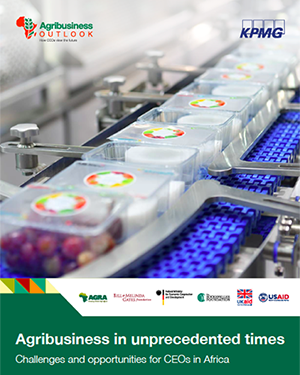KPMG and AGRA have published an outlook on Agribusiness in Africa based on data and conversations with 137 companies across Africa.
This a great overview of the challenges that face the agriculture sector in Africa, both in general plus the added issues created by the pandemic.

The report includes 10 priorities. Half of these are related to financing. Africa Eats address most of these directly.
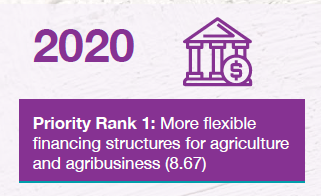
The topmost priority is new, more flexible structures for investment capital. This is why Africa Eats is a holding company, to provide these better structures.
It is far more often that capital is viewed from the investor point of view, measured as ROI (return on investment). The flip side of that is the cost of capital to the companies. A permanent capital investor drops that cost down close to zero.
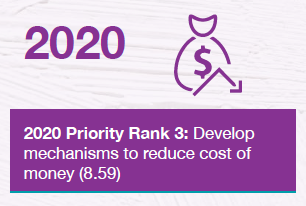
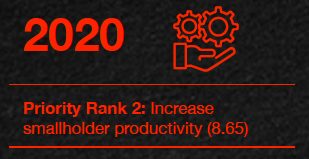
We talk to a lot of NGOs and DFIs running programs to increase productivity of farmers. Those program more often than not struggle to see a measurable improvement.
Meanwhile, we see increased outputs and increased incomes for the tens of thousands of smallholder farmers who work with the Africa Eats bizi. The difference is that we focus on creating markets for the farmers’ products. Provide a path from output to income and, not surprisingly, farmers produce more output. Teach the farmers how to improve their quality to further increase the value, and they listen.
Pull change through capitalism, rather than pushing through charity.
There is no rocket science needed (or much agritech either). Sales and logistics are what is missing most in the Africa food supply chain. That is what is driving the 50% annual growth rate of our companies.
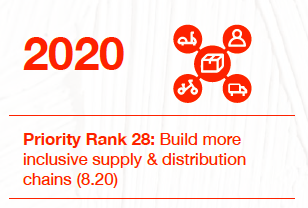
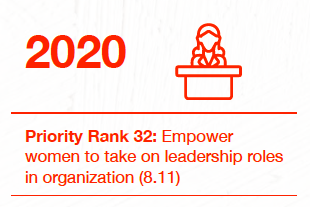
Half of African farmers are women. Half of African food companies should be run by women too. Plus half of management at the other companies should be women.
Africa Eats is a pan-African investment holding company focused on feeding Africa. We have a unique structure, with minority ownership of food/ag companies across the continent, providing both funding and support for our two dozen+ “bizi“.
We exist to meet the challenges this KPMG/AGRA report outlines.
Contact us if you can help us with that mission.

